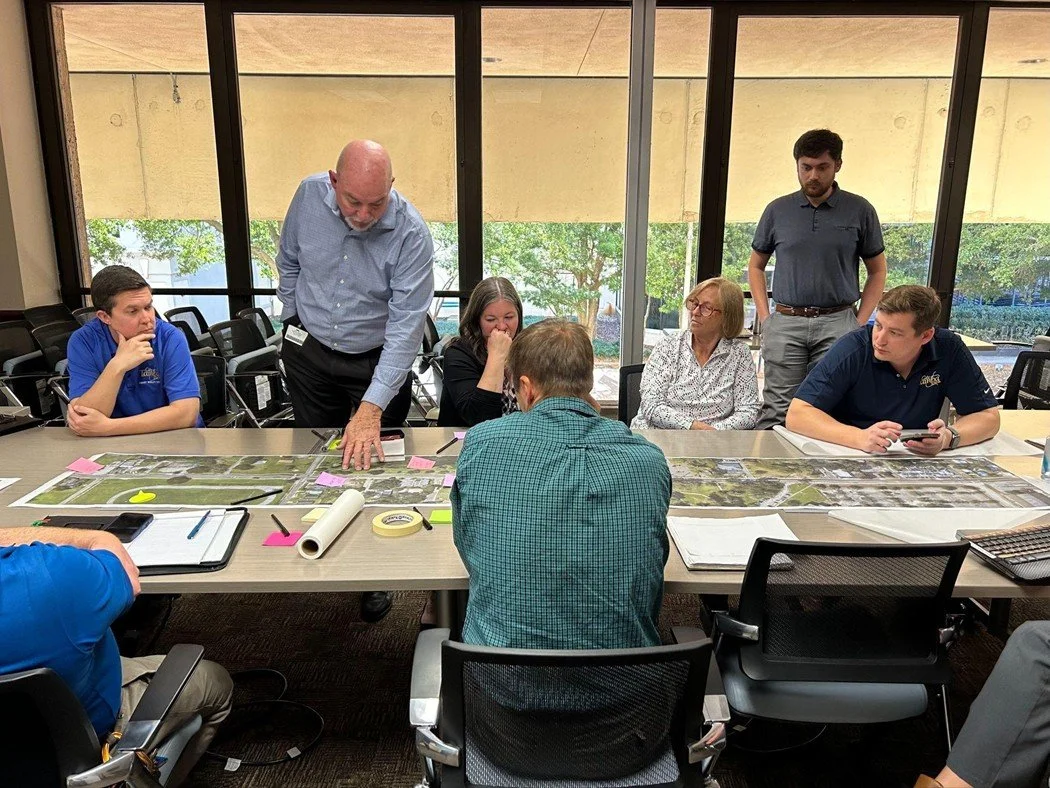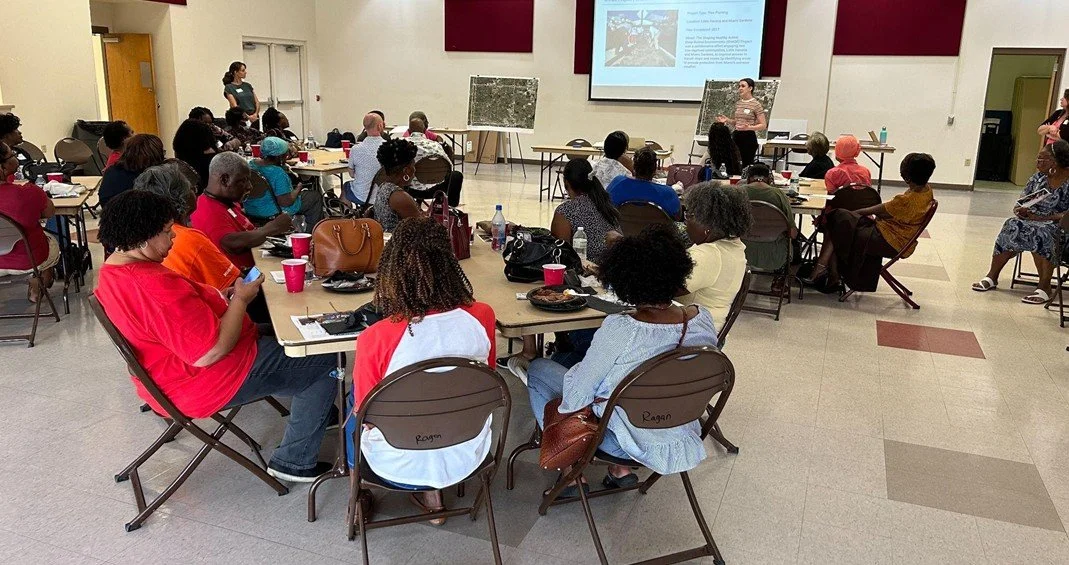Resilience Building in Action
Addressing the Impacts of Extreme Heat in Tampa
City of Tampa and Resilient Cities Catalyst staff on a site visit exploring alleyway resilience interventions
Communities across the United States are facing increasingly hotter temperatures. Although known for its warm climate, Tampa is far from immune from the dangers of extreme heat. Since 2016 the heat index has consistently exceeded 100 degrees for over 45 days per year. In the summer of 2025, Tampa broke records for both temperature and heat index, the latter of which reached 119°F. Even more alarming, projections indicate that by 2030 nearly 250 people in the Tampa Bay area will die of extreme heat per year.
Resilient Cities Catalyst first partnered with Tampa in 2020 to develop a Resilient Tampa, an agenda for strengthening resilience citywide which elevated extreme heat as a critically overlooked challenge that necessitated a targeted strategy of its own. Building on the Roadmap, RCC worked with the City to craft the Tampa Heat Resilience Playbook, using a three-pronged approach to identify the City’s most at-risk communities and shape recommendations. The approach included analysis and development of a Heat Vulnerability Index with the University of South Florida, consultation with the City to assess feasible and impactful actions, and community engagement reaching over 200 community members in heat-vulnerable East Tampa. Leveraging the information gathered through this process, the Playbook outlines 18 tactical actions to address extreme heat. These actions range from safety and outreach measures to physical cooling interventions in the public realm, preserving and planting more trees, and even shifts in citywide policies.
City staff and community members participate in a design charette led by Toole Design for the North 22nd Street Cool Corridor
Throughout the development of the Playbook, RCC worked with City and community leaders to kickstart the implementation of heat resilience work. Early efforts have included heat resilience interventions embedded in the City’s design of a state-of-the-art community center in East Tampa, expansion of home weatherization programming to incorporate heat adaptation measures, accelerated hydration station implementation, and the design of a pilot Cool Corridor along North 22nd Street in East Tampa. The Cool Corridor concept, which can be scaled to additional neighborhoods citywide, seeks to enhance cooling and safety on roads that have a high level of foot traffic and connect critical community institutions.
Resilient Cities Catalyst staff present to community members at an extreme heat workshop in the East Tampa neighborhood
Following the Playbook’s release in the summer of 2024, RCC has continued to work alongside the City to accelerate projects that address extreme heat—as well as the impacts of flooding and severe storms—in Tampa’s most vulnerable neighborhoods. This latest chapter of RCC’s partnership with the City of Tampa is focused on supporting small businesses to become more resilient to the impacts of climate-related challenges through physical upgrades and preparedness programming, while also improving resilience at the neighborhood-scale through infrastructure improvements along key commercial corridors.
Tampa is on its way to becoming a climate-ready city. Even as temperatures rise, the City’s leadership combined with the deep knowledge and commitment of community partners is charting a path forward that will allow all residents to adapt and thrive. RCC is honored to be a part of the journey.



